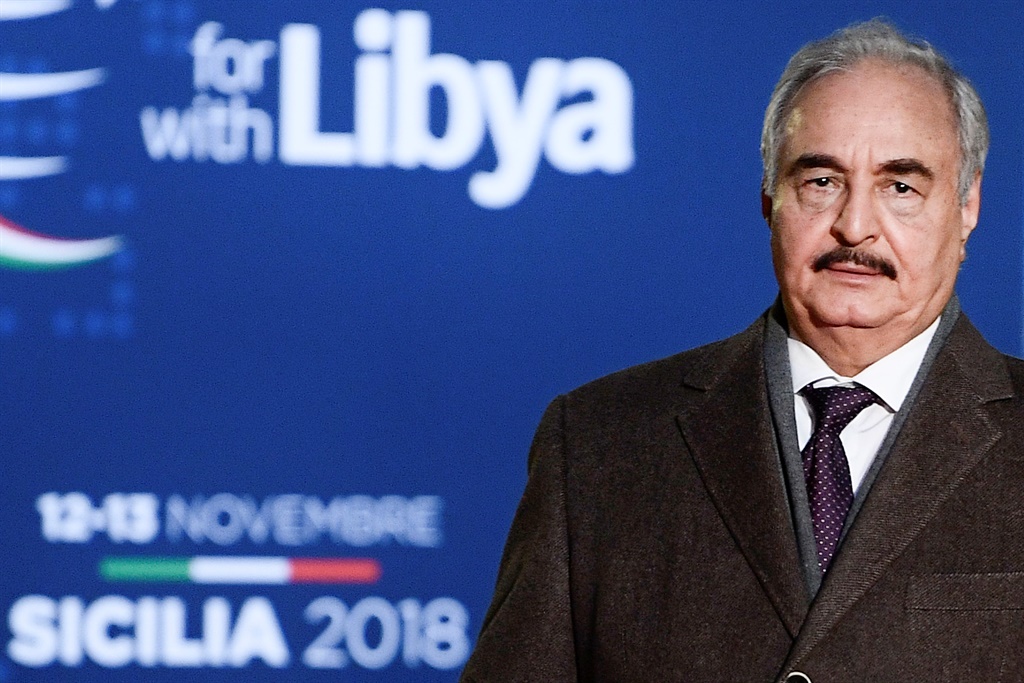

Libyan strongman Khalifa Haftar vowed on Friday to fight Turkish forces if peace talks in Geneva failed, in comments to a Russian news agency.
The eastern military commander, who is backed by Russia, gave the interview to RIA Novosti after meeting Russian defence minister Sergei Shoigu on Wednesday.
“If talks in Geneva do not achieve peace and security for our country, if mercenaries do not return to where they were brought from, the armed forces will fulfil their constitutional obligations… to defend against the Turkish Ottoman invaders,” Haftar said in translated comments.
Talks between the warring parties in Geneva ended earlier this month with no result.
A second round began Tuesday, but broke down after rocket fire hit a port in Tripoli. Talks then resumed Thursday.
The oil-rich country has been mired in chaos since 2011 when a Nato-backed uprising led to the killing of longtime dictator Moamer Kadhafi. Haftar launched an offensive to capture Tripoli in April.
Turkey supports the UN-recognised government in Tripoli led by Prime Minister Fayez al-Sarraj, with whom Turkish President Recep Tayyip Erdogan in November signed a deal on security, maritime and military cooperation.
“As we’ve said, our patience is at the limit due to the regular violations of the ceasefire by groups of fighters hired by Turkish President Recep Tayyip Erdogan and Libyan Prime Minister Sarraj,” Haftar said, accusing them of failing to fulfil promises they made in Berlin.
At a Berlin summit last month, countries including Russia, Turkey, France and Egypt agreed to end foreign interference in Libya and respect a UN arms embargo.
Haftar added that his forces “are assessing the situation in Tripoli, are in contact with the international sides and are ready for all options.”
Moscow and Ankara together brokered a tenuous truce in Libya last month. The two sides agreed to end fighting, but the ceasefire has been violated.
Haftar said Friday that his conditions for a ceasefire were “withdrawal of Syria and Turkish mercenaries, Turkey stopping supplies of weapons to Tripoli and the liquidation of terrorist groups.”
The UN envoy to Libya, Ghassan Salame, said Thursday that his mission to secure a lasting ceasefire and eventually a political solution was “very difficult” but “possible.”
